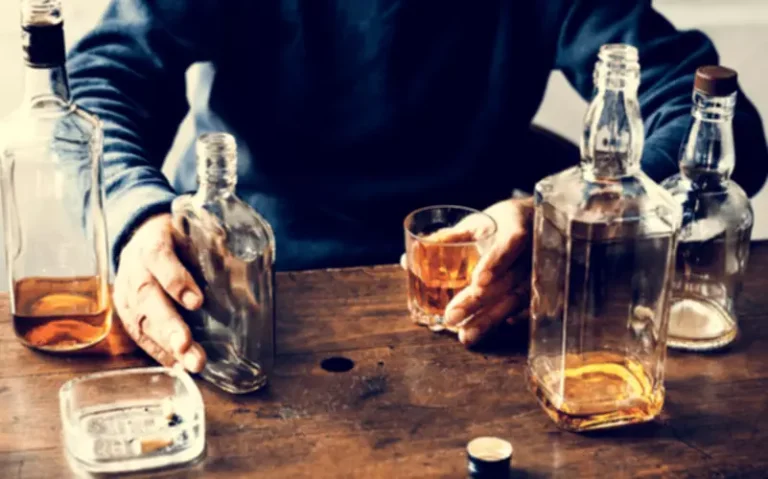Alcohol and weight gain
Focusing on a health-promoting lifestyle, which helps prevent excessive amounts of both types of fat, is important (4). Getting rid of excess belly fat, or abdominal fat, is a common goal for many. Women who participated in binge drinking were not only more likely to have obesity, but were also more likely to be attempting weight loss. Drinking beer can cause weight gain of any type — including belly fat. The best way to get rid of your beer belly is to reduce your alcohol intake, exercise regularly and improve your diet.

How Alcohol Can Contribute to Weight Gain

He’s a Certified Strength and Conditioning Specialist (CSCS) by the National Strength and Conditioning Association and he’s a Certified Personal Trainer (CPT) by American Council on Exercise. He’s worked as a Strength and Conditioning does alcohol make you gain weight Coach at the high school and college levels. He has over 15 years of experience as a personal trainer and nutrition coach. He strives to bring inspiration and results for people to live healthier lives through smart diet and exercise.
Best nonalcoholic drinks and spirits
- IPAs are generally the highest in carbs and should be avoided.
- Prospective studies have looked at the association between alcohol intake and adiposity gain in various populations, with follow-up periods ranging from several months to 20 years [4, 30, 31].
- This means you will most likely store those additional calories as fat while your body is trying to clear the byproducts of alcohol calories (3).
Artificial trans fats are strongly linked with poor heart health and may also lead to increased belly fat. Both the US and Canada have banned trans fats in commercial foods. A recent review of 127 studies found a significant dose-dependent relationship between alcohol consumption and abdominal fat storage (22). Dr. Heinberg also says it’s a good idea to develop healthy habits when it comes to drinking alcohol early on in adulthood.
Other ways to prevent bloating include:
This means you will most likely store those additional calories as fat while your body is trying to clear the byproducts of alcohol calories (3). In general, clear liquors like vodka have the fewest calories. For example, one 12-ounce pint of a stout beer provides about 220 calories, which is the same as eating a snack with three tablespoons of hummus, ten baby carrots, a stalk of celery, and an apple. Instead, you can use water and a slice of lemon or orange as your chaser to help flush out the aftertaste of alcoholic beverages. Having a glass of wine with dinner or a beer at a party here and there isn’t going to destroy your gut.
Make a Plan for Drinking
Adolescents are also likely to binge drink, which can lead to serious consequences, including injury and death. Mutual-support groups teach you tactics to help you overcome your compulsion to drink alcohol. AA is a 12-step program that provides peer support and applies 12 spirituality-based principles. The NIAA offers a list of a number of these support groups, including secular options. It’s produced by the adrenal glands and is known as a “stress hormone” because it helps your body respond to a physical or psychological threat or stressor (79). Gut bacteria are collectively known as your gut flora or microbiome.
Avoid Eating Greasy and High-Calorie Foods
Alcohol can contribute to weight gain by slowing down metabolism. But this isn’t the only reason alcohol is linked to weight gain. Here are a few other reasons why alcohol can cause you to gain weight. Alcohol spikes cortisol levels in the body, which contributes to the accumulation of belly fat.
- This leads to decreased digestive secretions and movement of food through the tract.
- Even drinking a little too much (binge drinking) on occasion can set off a chain reaction that affects your well-being.
- However, studies also show that heavy drinking and binge drinking appears to increase the development of excess body fat, among other health problems (Traversy, 2015).
- In particular, the body slows down the chemical reactions that break down (or “burn”) fat.
- From there, the body breaks down acetate into water and carbon dioxide.
- Nevertheless, drinking more than that could very well lead to significant weight gain over time.
- In several studies, volunteers were given, unknown to them, either an alcoholic beverage or a similarly tasting but alcohol-free beverage before a meal and then allowed to eat what they wished.
In some cases, 1 drink may actually have 2 or more servings of alcohol and calories. If you are served a drink that is larger than the standard size, skip a second drink. At home, use a jigger when mixing drinks, and serve them in smaller glasses.


